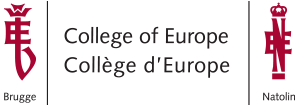WEASA 2019’s first week has officially come to an end!
We begun the week with a discussion with Dariusz Jemielniak, a Fulbright Program Alumnus and Full Professor of Management at Koźmiński University. Talks focused primarily on the wider relationship between humans and technology – to what degree will technology transform our lives in the coming decades? What will stay the same? We looked at a wide range of topics and case studies, including the power of big tech firms such as Amazon.
The topic of big tech continued to feature on day two. There, our inaugural lecture – presented by Ryan Heath from POLITICO Europe – touched upon the power of digital giants and what steps we can take to regulate them. We followed this topic to the HubHub startup and coworking space, talking about startups and the Polish tech scene in general. Day two was, however, a long day: we finished with a deep look at disinformation operations in Poland and beyond, presented by Anna Mierzyńska.
Then, the focus shifted a little. We began to talk about AI and algorithms on day 3. Lindsay Graham, from the German Marshall Fund of the United States, asked us to consider what an algorithm is and how it functions. What impact do they have on our modern information infrastructure? Can they exacerbate radicalisation, polarisation, and extremism? And what can we do to fight back against such risks?
We had heated discussions about algorithms. Then, we ended up having an even bigger debate on social media moderation, asking ourselves what content should stay up on social networks and what should be removed. Jillian C York, from the Electronic Frontier Foundation, led the sessions on day four.
On the fifth day, we all broke out into smaller workshop groups for our soft skills workshops. Those looked at social media, debating, and negotiations skills.
We closed the week with a chilled out session, in which we roamed around the main atrium of our hall of residence, examining the Tactical Tech Glass Room Exhibition and talking about data privacy in the 21st century.
Read More



